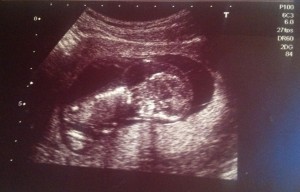Why is it so important how we refer to people with DS? I have had this discussion with my other half a number of times, in trying to understand my own thoughts and feelings on this subject.
On the one hand, putting my impartial biologist’s hat on, I can understand why one might refer to someone as ‘a Downs’ or ‘is Downs’ in the same way as you might say ‘is diabetic’ or ‘an epileptic’. This is using the term purely as a medical description to identify that the person has a trisomy on the 21st chromosome.
And yet, why do I internally flinch when I hear someone say it? (Interestingly, sometimes it is other parents of a child with DS.) My dislike of the term ‘a Downs’ is probably because I feel it has been used in a negative and derogatory way in the past. It makes me feel uncomfortable – just as if I heard someone say ‘a black’ or ‘a Paki’. They are not being used as descriptive terms but unpleasant labels, which identify the person as ‘different’. I don’t think anyone would be offended by, for example ‘he/she is from Pakistan’ or in the same vein, ‘he/she has Down Syndrome’. That is a simple statement of fact, an ‘Oh, by-the-way’ bit of information. Importantly though, it does not define the person, nor does it suggest that they may somehow be inferior or not belong.
So, just for the record, I think it is important to say ‘someone with Down Syndrome’.
Your thoughts are welcomed…….



You must be logged in to post a comment.